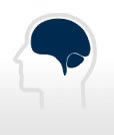Prof. Dr. Christian Klaes

Research Programme:
In our daily life we naturally reach for objects and manipulate them without effort. Grasping and tool use are so fundamental to our lives that when we tragically lose these abilities we also lose a great deal of autonomy.
In my research group we want to develop advanced neuroprostheses to help paralyzed patients. In our highly interdisciplinary approach we combine expertise in the neurosciences, neurosurgery, state-of-the-art machine learning and virtual reality to improve brain computer interfaces (BCI). A BCI is a system which enables communication between the brain and the outside world while bypassing the spinal cord. Neural signals are 'read-out' and movement intentions are decoded using dedicated software. These decoded movement signals are then used to control a prosthetic device. Thereby a BCI allows paralyzed patients to regain autonomy and improve their quality of living.
To reach this goal we need to understand how the brain integrates sensory input and executive control to generate movement plans. How does the brain learn to control a BCI? How do neurons change their selectivity when new tasks are learned? How is the decision made to grasp one object out of a multitude of options? These are just some of the questions we try to answer. The clinical setting of our research group allows us to closely work with physicians and patients using modern methods of data acquisition. In addition to that we also collaborate with a robotics lab to provide a physical robot arm for prosthesis control.


